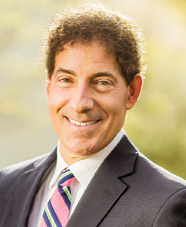
Everything about the Second Amendment is contested, beginning with its grammar. The text is: A well regulated Militia, being necessary to the security of a free State, the right of the people to keep and bear Arms, shall not be infringed.
Conservatives read the prefatory clause as a kind of throat-clearing introduction, language that is logically disconnected from the definition of the substantive right. Liberals believe that the clause crucially informs the meaning of the so-called operative clause so that the individual's right to possess weapons must be linked directly to participation in militia service, which is what we call today the National Guard.
The historical dispute follows the lines of this argument. Conservatives say that, while people may have originally possessed weapons as a result of there being a popular militia, a broad popular right to gun ownership became entrenched in the culture of the colonies. Liberals are skeptical of that claim and argue that gun possession was much more closely tethered to participation in the militia. Some historians argue that the real motivation behind the Second Amendment was to guarantee that the federal military would not try to disarm local militias called out to put down slave insurrections.
In the 5-4 Heller decision of 2008, the Supreme Court majority adopted the conservative position and found that the Second Amendment right goes far beyond militia service. It took the position that there is a broader and historically rooted right to individual arms for self-defense, hunting, and recreation, as well as the traditional purpose of participation in militia service. In the decision, the court struck down Washington, DC's handgun-control ordinance, which was the strictest in the country, as a violation of the population's right to armed self-defense in the home.
As polarized as debate is over the Second Amendment, there is in fact a huge area of common ground we can work with to make social progress. Both sides agree that the right must be subject to reasonable regulation. Indeed, every right in the Constitution is subject to reasonable regulation, including speech. We allow reasonable time/place/manner restrictions for speech. You can protest in front of the White House, but not at 2:30 in the morning with a bullhorn. You have a right to free exercise of religion, but not if your beliefs entail human sacrifice or child slavery.
Even the majority in the Heller decision, which gave the most pro-NRA interpretation of the Second Amendment in Supreme Court history, said the Second Amendment right does not extend to felons, to the mentally ill, to gun possession in public buildings, and so on. There's simply nothing absolute about the right, even in the strongest pro-gun gloss ever given the document.